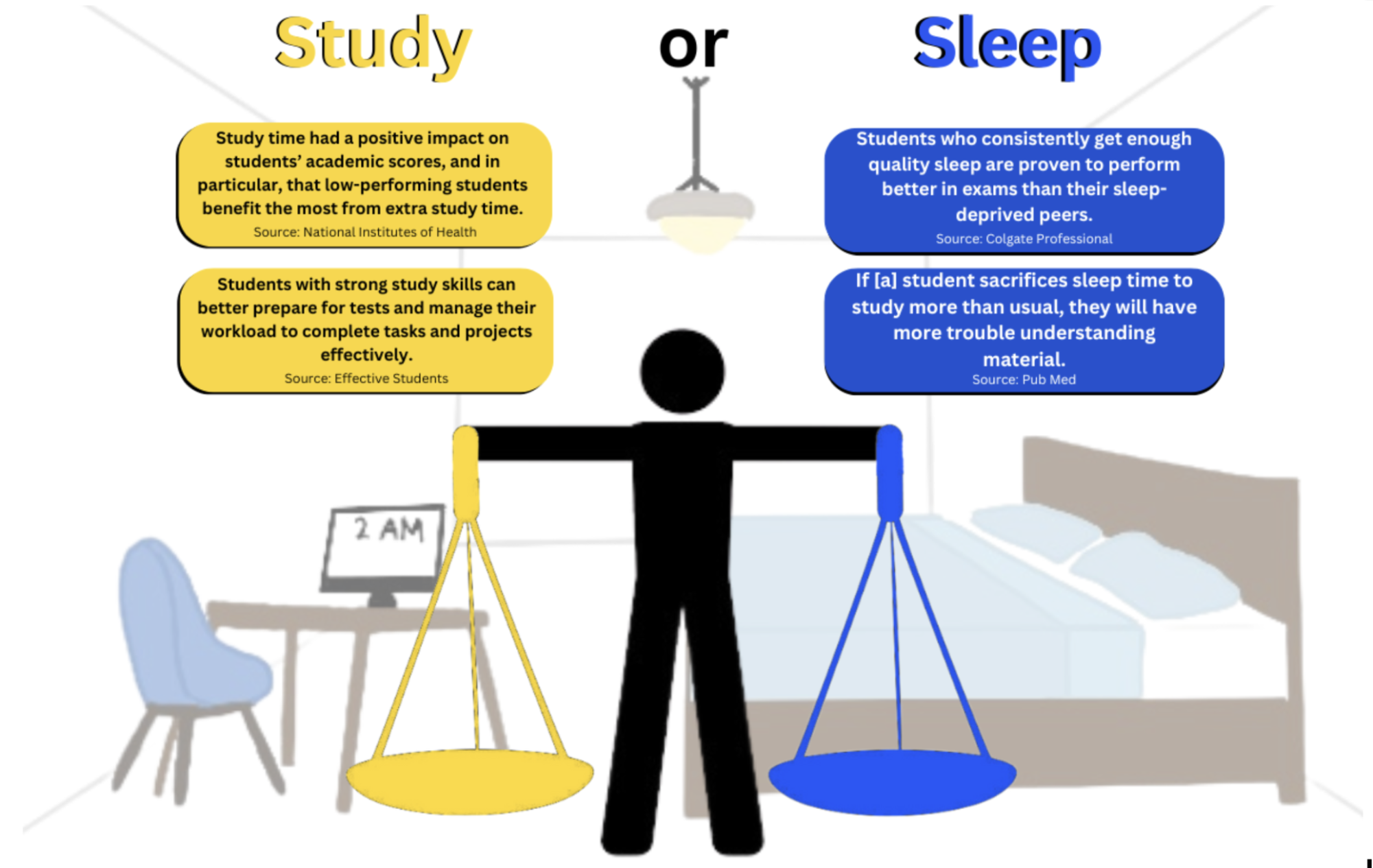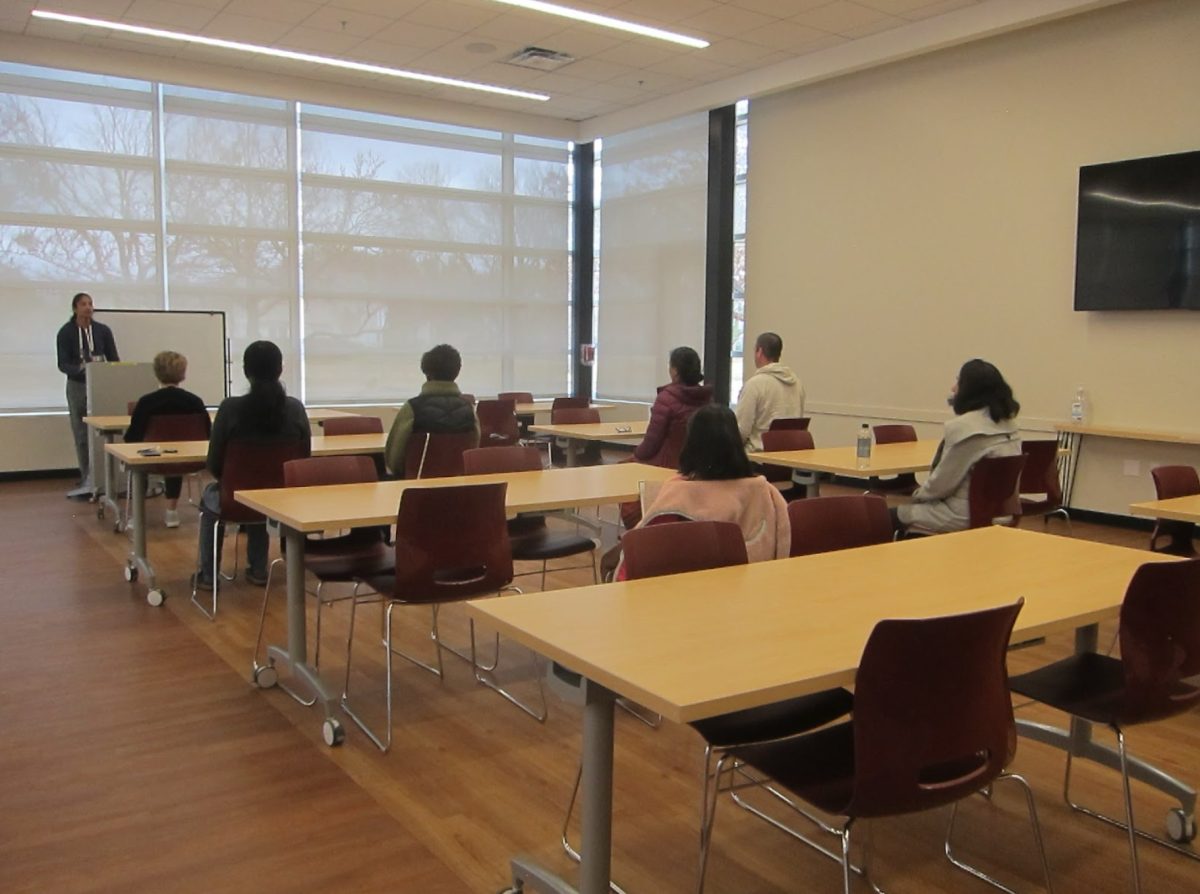
There is one major question in a students’ daily life: how much should students sacrifice rest and sleep for good grades? Late nights and early mornings cause many high schoolers to balance academics, extracurriculars and sleep. This situation causes students to wake up feeling drowsy and groggy in the morning. For some, this means late-night study sessions that push their sleep schedules to unhealthy limits.
“Between Technology Student Association, volunteering and homework, I feel like there’s no choice but to stay up late to keep my grades up,” sophomore Prajwal Kashyap said.
The effects of sleep deprivation go beyond fatigue. Students who consistently lack sleep have decreased concentration, reduced academic achievement and higher stress levels.
“There are nights when I barely get four hours of sleep,” senior Hasit Annam said. “I know it’s unhealthy, but between cricket practice and everything else, there’s just no time for me to waste.”
This cycle of late nights can be harmful. Sleep deprivation impairs cognitive function, affecting concentration and memory, which in turn can negatively impact test scores and overall academic performance.
Many students recognize this yet find themselves caught in a vicious cycle of heavy workloads. Homework, tests and extracurriculars pile up on one another, making sleep seem impossible.
Sleep is made up of different stages that help the body and brain rest and recover. The sleep cycle has four stages, which repeat several times throughout the night.
Each stage plays a role in making sure students wake up feeling refreshed and ready for the day ahead. When students do not get enough sleep, they miss out on the final important stages, which can make it harder to concentrate, remember information and stay alert in class. Over time, this lack of sleep can also lead to higher stress levels and weaken one’s immune system, making students more likely to get sick.
While better time management and adjustment in workload could provide relief, the pressure for success continues to drive students into exhausting schedules. Getting enough rest each night allows students to stay focused, perform better in school and feel more energized throughout the day.
Prioritizing sleep and developing healthier habits contributes significantly to long-term success in both academics and well-being. However, students can follow many alternative strategies to improve their grades and achieve a good night’s sleep by creating a personalized to-do list and taking a short nap in the day. It is absolutely possible for students to relax and enjoy their day, while still being at the top of their academics if they maintain a healthy sleep schedule.
Follow @CHSCampusNews on X.









